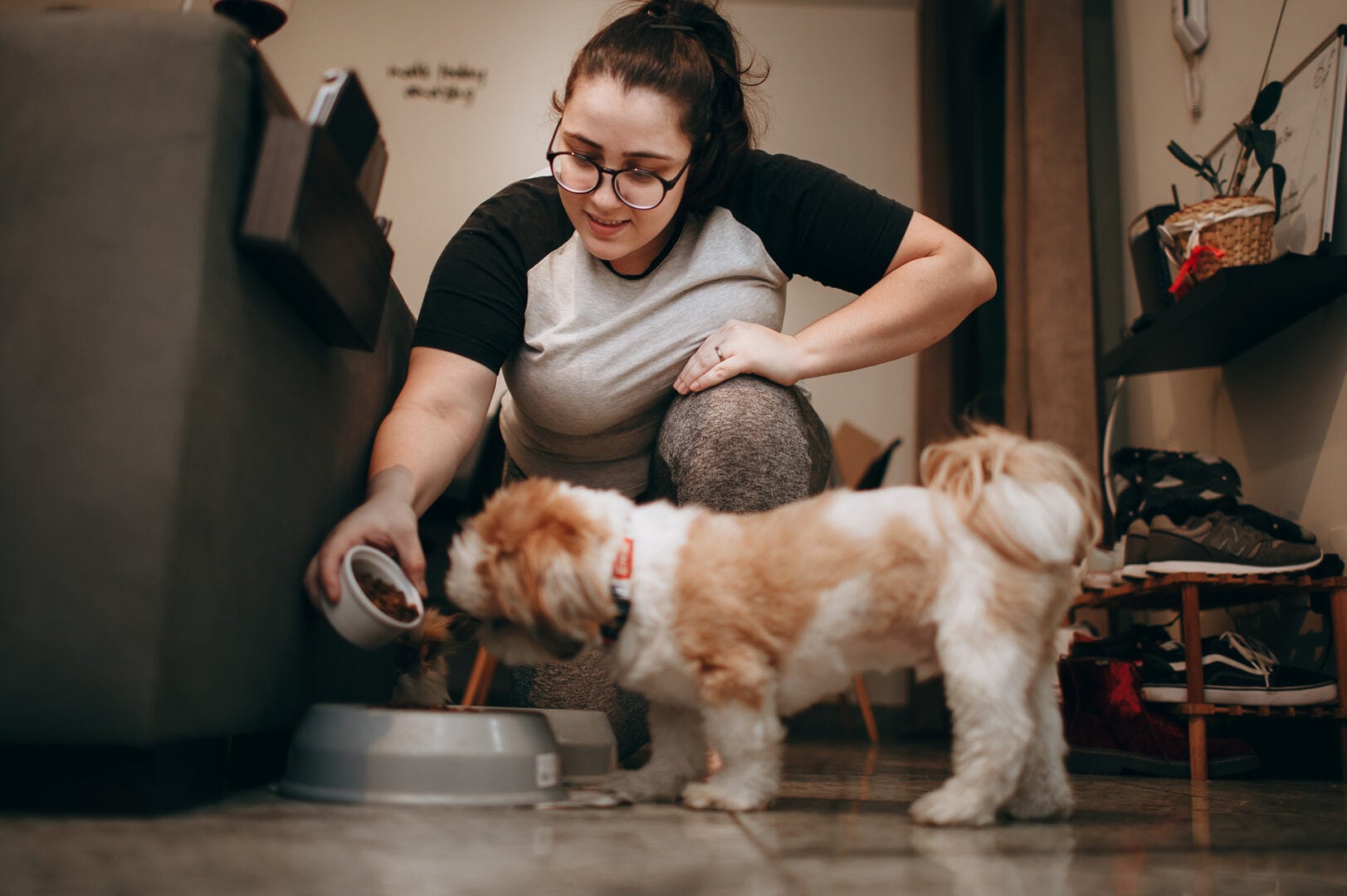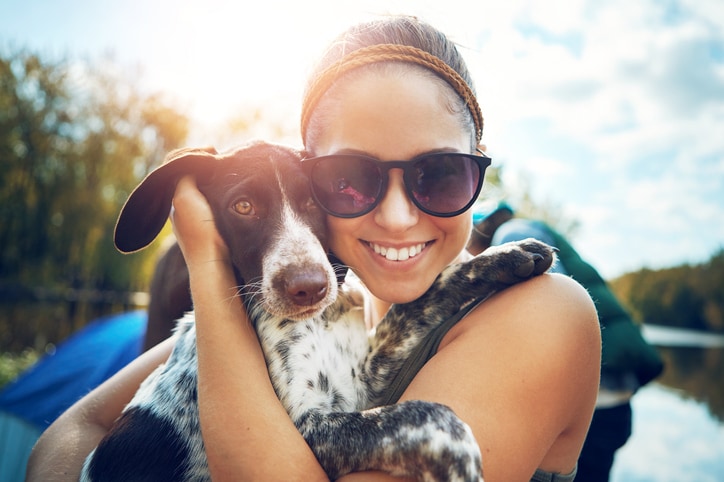Whether you’re going on a quick weekend getaway or an international adventure, finding a trustworthy pet sitter is a crucial part of planning your trip. Leaving your cat, dog or other pet in the care of a stranger can be stressful, but finding the right pet sitter will allow you to enjoy your time away knowing that your pet friend is being well cared for. Interviewing a potential pet sitter — preferably in person, with your pet present — will help you decide whether they’re the right person to entrust with your pet.
Beth Stultz-Hairston, president of Pet Sitters International, says it’s not a decision that should be rushed. “Pet parents give pet sitters access to their beloved pets and their homes, so it’s vital that they take time — and know the right questions to ask — to choose a qualified and reliable professional pet sitter,” she says. “Simply choosing someone who loves pets and has availability isn’t enough.”
Ready to find your dream pet sitter? Here are seven questions to ask a potential pet sitter to ensure they’re the perfect fit.
Key takeaways
- Finding the right pet sitter takes time, thoughtful interview questions and an in-person meet-and-greet with your pet to ensure a good fit.
- Asking about experience, training, certifications and references helps you assess whether a sitter is qualified to handle your pet’s specific needs.
- Professional pet sitters should have insurance, business credentials and a written contract that clearly outlines responsibilities and emergency protocols.
- A detailed pet profile — including medical info, behavior cues and household logistics — helps set your sitter up for success while you’re away.
Find Pet care near you
Interview questions to ask a pet sitter
1. What type of pet sitting experience do you have?
Weed out inexperienced candidates by first asking for a rundown of their pet sitting experience. While simply owning a dog or cat may seem like sufficient experience for taking care of your pet, it’s better to look for pet sitters who have cared for numerous pets over time.
Questions you can ask to assess pet sitting experience include:
- How long have you been pet sitting?
- What types of pets have you cared for?
- Is pet sitting a part-time or full-time job for you?
- Are you educated in pet behavior and health?
- Tell me about a challenge you’ve had as a pet sitter and how you handled it.
Amanda Carlson, owner of Amanda’s Pet Care in Arlington, Virginia, also suggests asking at least one question specific to your pet’s needs and behaviors. For example, the questions to ask a dog sitter should include specifics about walks, playtime, feeding, discipline and other facets of your dog’s care. “Whether you have a 12-week-old puppy, a senior cat, a deaf dog, a dog with leash reactivity or a history of escaping,” she says, “ask them what their experience is with those particular things.”
2. What’s your approach to pet sitting?
Different pet sitters operate in different ways, and owners have different preferences, as well. Some will watch pets in their own home while others will do drop-in care throughout the day or actually stay in your home. Pet sitters like Jenny McIlroy, owner of Busy Paws in Kansas City, offers services in 15-minute increments in her clients’ homes.
“I always remain in contact with clients, and we communicate about behavior on a daily basis to be sure we are keeping the pet comfortable.”
— Jenny McIlroy, pet care business owner
“I let the clients decide what would be best for their pets, and if I find I need to alter the time I spend with the pet when I’m actually doing my job, then I communicate that with the clients,” she says. “Sometimes, I encounter a very needy dog who would love extra cuddle time, and I let the client know that maybe we should consider a longer visit here or there going forward. I always remain in contact with clients, and we communicate about behavior on a daily basis to be sure we are keeping the pet comfortable.”
3. Do you have any business credentials?
To fully protect yourself and your pet, one of the important questions to ask a potential pet sitter is whether they have a business license (if required where you live), along with pet sitter liability insurance and bonding.
“These are hallmarks of legitimate, professional pet-sitting businesses,” explains Stultz-Hairston. “Insurance policies specifically for pet sitting are available … that protect clients and their pets in the event of damage to the home or an injury to the pet while in the pet sitter’s care,” she says.
Using a sitter who is bonded and can provide proof of a background check offers an additional layer of peace of mind, according to Stultz-Hairston, as it protects the client in the event of theft by a pet sitter.
4. What pet-specific training or certifications do you have?
Serious pet sitters are more likely to have training or pet care certifications, such as pet first aid, CPR or behavioral training. Experience with your specific type of pet is also important, as well as experience in caring for mature or special needs pets, if applicable to your situation.
“…It’s important that your pet sitter be trained and comfortable handling unexpected situations.”
— Beth Stultz-Hairston, president of Pet Sitters International
“While you may think your pet sitter will only need to be able to feed and walk your dog or feed your cat and scoop litter boxes, emergencies and dangerous situations can occur — from arriving to a home to find a cat with a possible urinary tract infection (which can be lethal) to encountering stray dogs while on a dog walk,” Stultz-Hairston says. “So it’s important that your pet sitter be trained and comfortable handling unexpected situations.”
5. Can you provide pet care references?
It’s well worth the time to contact a few of the pet sitter’s current or former clients to ask about their experience.
“The entire relationship between sitter and client is built on trust, and if contacting a reference helps in any way, then both parties involved should feel positive about that,” McIlroy says.
Be prepared with a few questions for the references, such as how reliable the pet sitter is, if their pet seems to like the sitter and if they’ve encountered any issues with them.
McIlroy especially recommends checking references for part-time sitters, who aren’t officially operating as a business. “There is much more at stake for a person who maintains a business entity than someone offering their services on Craigslist,” she says.
6. How well do you get along with my pet?
This is less a question you’ll ask a potential pet sitter than one you’ll be able to assess during the initial meet and greet, which is recommended before hiring any pet sitter. During this meeting, observe how the pet sitter interacts with your pet as you discuss services and business policies.
“This initial meeting is vital because it provides an opportunity for your pet and the pet sitter to meet and ensure it’s a good fit,” Stultz-Hairston says, and it’s also “an opportunity for the pet sitter to collect important information about your pet’s care.”
7. Will we have a signed pet sitting agreement/contract?
Experienced sitters will bring a pet sitting contract to your meet and greet that will outline all of the details associated with each service they’ll provide.
“This is beneficial for both parties involved, as it sets expectations,” McIlroy says. “I include topics like emergency care, safety, holiday fees, communication, prompt payment — all subjects that are important to discuss and be sure you’re on the same page about. A contract makes that a very simple process.” She adds, “I encourage all pet owners to only work with sitters who take the time to compose contracts.”
Read more:
Carlson also recommends creating a comprehensive client profile, or emergency folder, for your pet, which should include important documents and details like the veterinarian’s address and phone number and the pet’s medical history and any medications, vaccination records, behavior history and what commands they know.
“The last one may seem unimportant, but if your dog knows the command ‘Lay’ and your pet sitter is telling them ‘Down,’ then your dog isn’t going to know what your pet sitter is asking of them,” Carlson says. “A client profile should also include basic information about your home such as where the vacuum is and where the trash bins are located. These little details will help your pet sitter provide the best care for your pets and home while you’re away.”





